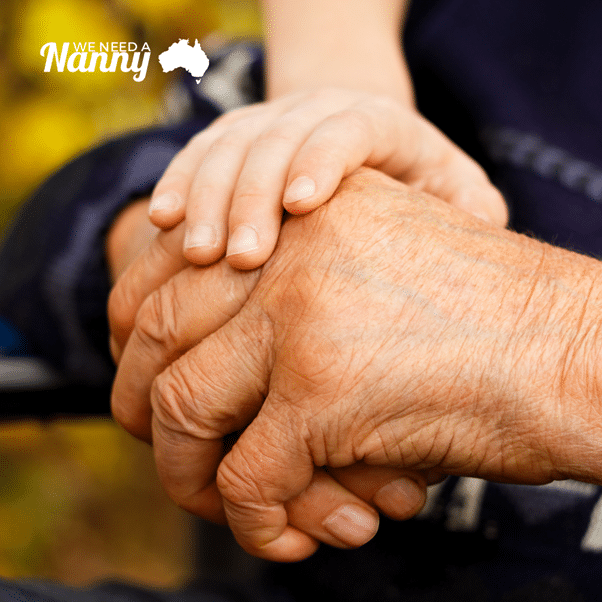Children’s natural scepticism and curiosity can cause them to challenge authority, which is sometimes interpreted as disrespectful language and behaviour. One fundamental concept of respect is to treat others well, and at the same time defend one’s perspective and ability to speak up as well.
It is pivotal that parents and caregivers model respectful behaviour themselves as part of the effective ways to start teaching kids respect from a young age. Children must understand that everyone deserves respect, and that respect is a two-way street. Everyone has the right to demonstrate respect and to be respected by others.
Strategies to Teach Children Respect
Teaching children respect is essential to their development and social interactions. Teaching them respectful behaviour helps them understand the value of treating others with kindness and consideration. As a parent or caregiver, you can achieve this through positive discipline strategies that encourage good manners and self-respect.
As parents and caregivers, we must model respectful behaviour in our everyday lives, to demonstrate how to listen and respectfully engage with others. Recognising and praising respectful actions will help to reinforce the lesson while setting clear limits. It is important to create an environment where respect is prioritised that equips children with the tools they need to navigate through various social settings throughout their lives.
Building a Respectful Environment at Home
You can create a positive and respectful atmosphere at home by modelling respectful behaviour and encouraging more open communication. It is vital that parents and caregivers establish clear rules and expectations for behaviour and consistently enforce them.
We must encourage our kids to express their feelings and opinions, and parents and caregivers must practise active listening. When we practise active listening, we validate our children’s emotions and show appreciation and gratitude towards family members and others.
Teaching Respect to Kids
The following tips are ideal to help instil respectful behaviour in children:
- Define respect for your children, and what it means to expect kids to be respectful in a simple manner that they can understand and implement in their everyday lives.
- Teach children that respect is not merely saying “please” and “thank” you, but rather defining respect as an overall consideration of others and how we treat them.
- You can use a few real-life examples to illustrate respectful behaviour in comparison to disrespectful behaviour, such as sharing toys or taking turns.
- Encourage your children to always think before they act, and imagine how their own beliefs and actions would affect others, or place themselves in the other person’s shoes.
- Empathy is a concept that relates to respect for others and is essential to be taught to children.
Encouraging Respectful Behaviour
You can encourage respectful behaviour in the following ways:
- Praise and encourage children to show respectful behaviour towards others, and acknowledge their consideration.
- Use positive reinforcement to encourage good behaviour in children.
- Teach them how to apologise and make amends when they have been inconsiderate to others.
- Encourage your children to be accountable for their behaviour and face consequences for their actions.
- Model respectful behaviour yourself.
Activities to Teach Respect
You can also try these fun activities to teach children respect:
- Create what you call a “respect chart” with images and words illustrating respectful behaviours.
- Engage children in various games that involve taking turns and sharing, card games and board games are a good idea.
- Try role-playing different scenarios where children are expected to model respectful behaviour, such as sharing toys or even resolving conflicts.
- You can also create a respect jar as an incentive. The jar contains small prizes, such as sweets or stickers that children can earn for modelling respectful behaviour.
Teaching Kids to Respect Others
Teach kids the belief that everyone is worthy of respect, no matter their background, culture, or abilities. Emphasise the significance of kindness and consideration towards those who may be different from them.
Foster curiosity by encouraging kids to ask questions and explore various cultures and traditions. Teach them to communicate using respectful language and tone in their interactions. Demonstrate respectful behaviour consistently, setting an example for children to follow and reinforcing the expectation that they treat others with the same regard.
Teaching Kids to Respect Themselves
It is essential to teach kids that they deserve respect and kindness just as much as everyone else does. It is important as a parent or caregiver to encourage your children to take care of their physical and emotional needs.
You can do this by teaching them how to set boundaries and assert themselves in a respectful way. Also encourage them to try new things and take a few risks and praise them for their efforts, even if they fail. It is important that you, as a parent or caregiver, also model self-respect and self-care if you expect your children to do the same.
Managing Disrespectful Behaviour
When children show disrespectful behaviour, you must stay as calm and composed as possible with your response. Try to use more positive discipline techniques, such as redirecting or problem-solving when you are addressing the behaviour.
It is vital to teach kids how to apologise and make amends when they have been inconsiderate to someone. Thus, you must encourage them to take responsibility for their actions and to think how they can improve their behaviour. Furthermore, it is also important that you model respectful behaviour towards others, including children as a method of teaching them.
Overcoming Common Challenges
It is important to be consistent when you are enforcing rules and expectations for positive behaviour or respectful behaviour. Punishment and negative reinforcement is not the best way to teach respect in children, because it has a way of undermining respect, rather than instilling it.
Rather, use positive reinforcement techniques such as praise or rewards and encouragement for respectful behaviour. Teach your children how to manage their emotions and help to develop self-regulation skills. Modelling respect yourself towards your children and others also helps to overcome some of the most common challenges.
The Importance of Consistency
Teaching children the value of respect requires consistency. It’s essential to set clear guidelines for acceptable behaviour and to apply these standards uniformly. By doing so, children learn the importance of respect in their interactions with others, fostering an environment where they feel valued and understood.
Teaching Respect in Different Settings
Try to demonstrate to children the significance of respect across various environments, these environments could include: home, school, and the wider community. It is essential to encourage them to exhibit courteous behaviour towards everyone, including teachers, classmates, and local residents, and not just adults or persons in a position of power.
Demonstrate respectful interactions with yourself, setting a standard for children to follow. Equip them with the skills to navigate diverse social contexts and cultures, fostering curiosity by encouraging questions about different traditions and practices.
Conclusion
Keep in mind that teaching children respect does not happen overnight. It is an ongoing process that requires much patience, consistency and some positive reinforcement. One of the best methods to teach children respect is by modelling respectful behaviour yourself.
With open communication, parents and caregivers can create a positive and respectful atmosphere at home where children are free to air their opinions and feelings. It is also important that you teach kids why respect is important and how to demonstrate it.
This will help them develop into respectful and empathetic individuals. Remember that respect goes two ways. Kids deserve to show respect and receive respect and kindness just as much as everyone else.










